You want your pet to be as healthy as possible and remain that way throughout their life. Part of basic healthcare for your dog or puppy is their vaccinations. Many new owners want to know the costs ahead of time so they can plan and budget accordingly. The cost will vary depending on your location and whether you have an adult dog or a puppy, but if you decide to give your pet all the necessary vaccinations, you can expect to pay between $200 and $800.

Why Do Puppies and Dogs Need Vaccinations?
Vaccinations prevent your pet from contracting contagious diseases. Some areas offer vaccinations for specific diseases that are prevalent or that your pup is at high risk for. However, a core set of vaccinations is given to puppies beginning at 6 to 8 weeks of age.
Puppies are particularly susceptible to diseases like parvovirus, distemper, and hepatitis. They are immunized against these illnesses through a series of vaccinations given in their first 3 months of life. Additionally, rabies is a core vaccination that all dogs need to get, typically by law.
Whether you are adopting a puppy or an adult dog, consult your veterinarian to determine which vaccinations your pet needs and the appropriate schedule. If you’re unsure of the animal’s previous vaccination history, your vet may advise that you get them a series of booster shots to ensure they are up to date.
If you live in an area prone to ticks, we recommend asking your veterinarian for medication or vaccinations to prevent tick-borne diseases. They can also give you the information you need about any illnesses present in your region or state.
If you need to speak with a vet but can't get to one, head over to PangoVet. It's our online service where you can talk to a vet online and get the advice you need for your pet — all at an affordable price!
What Vaccinations Are Included in the Puppy Schedule?
Some vaccinations in the puppy schedule are only recommended, such as Lyme disease, while others, like rabies vaccinations, are required by law.
This guide gives you a list of core and recommended non-core vaccinations. It’s essential to speak to your veterinarian for specific recommendations for your dog, as the law might change in your state, but this will give you a general idea of what to expect.
| Dog’s age | Core vaccinations | Recommended vaccinations |
| 6–8 weeks | Parvovirus | Bordetella |
| Adenovirus/Hepatitis | Parainfluenza | |
| Distemper | ||
| 10–12 weeks | Parvovirus | Lyme |
| Adenovirus/Hepatitis | Canine Influenza | |
| Distemper | ||
| Rabies | ||
| Leptospirosis (required in California) | ||
| 12–16 weeks | Parvovirus | Lyme |
| Adenovirus/Hepatitis | Canine Influenza | |
| Distemper | ||
| Leptospirosis (California only) | ||
| Dogs over 16 weeks with unknown vaccination history | Core puppy shots listed previously are given twice, 4 weeks apart | |
| Rabies | ||
| 26–52 weeks | Booster shots | Lyme disease |
| Rabies | ||
| Every 6 months | Bordetella (Kennel cough) | |
| Parainfluenza | ||
| Every 3 years | Revaccination | Influenza |
| Rabies |
It’s important to note that the age and frequency of rabies vaccinations and boosters varies by state. Most vets give this vaccine every 3 years, but you should check with your veterinarian to confirm the requirements in your location.
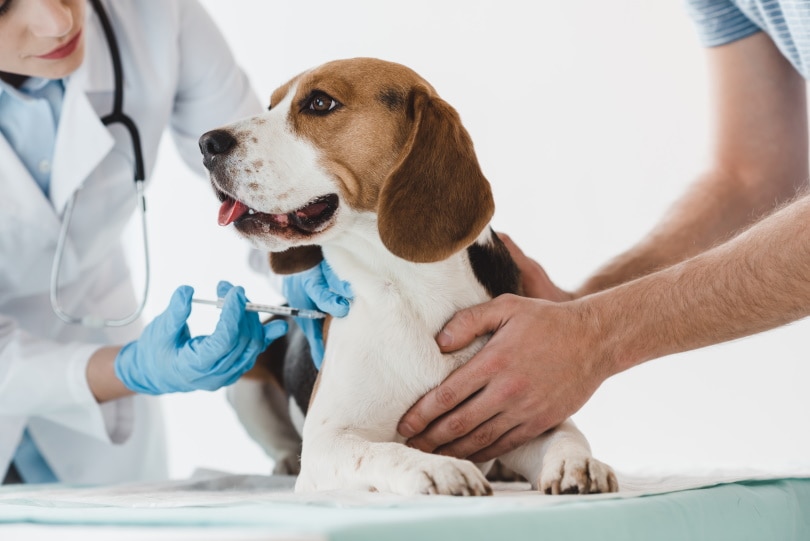
How Much Do Dog and Puppy Vaccinations Cost?
The price of your pet’s vaccinations will depend on whether you choose to give both core and non-core vaccines and whether you require additional vaccinations for locations your dog will be traveling to.
Some vaccinations are usually included in your adoption fee if you adopt your pet from a shelter or rescue organization. To ensure a healthy start, young puppies are not adopted by families until they have had a full vet check and their first vaccinations.
Here are the estimated average costs that you can expect for your dog or puppy’s vaccinations:
- Routine vaccinations: First year: $100–$350; annual cost: $80–$250
- Heartworm prevention: $24–$132 annually
- Flea and tick prevention: $40–$200 annually
- Distemper vaccination: First year: $20–$30; annual cost: $40–$60
- Rabies vaccination: First year: $15–$25
- Deworming: First year: $20–$50; annual cost: $80–$200
The cost of these vaccinations adds up, but you can save your dog from much more expensive health issues down the line. Health insurance for your pet may help cover the costs of vaccinations. If you’re thinking of getting pet insurance, you may want to look at Lemonade. It offers balanced, customizable insurance and helpful customer service. Comparing multiple policies is the best way to know if you are getting the coverage you need.
Guidelines for Vaccinating Your Dog or Puppy
While the benefits of vaccinating your dog outweigh the risks, the risk factors should still be assessed for each animal. This assessment should be undertaken with your veterinarian. Vaccination risks are a hot topic, and it is not a legal requirement in most places to get your pet vaccinated, except for rabies vaccinations.
However, most studies show compelling reasons to get your dog vaccinated regularly.
Pros of Vaccinating Your Dog
The biggest argument for vaccinating your dog or puppy is the prevention of life-threatening illnesses. While most pet owners today have never experienced a pet that has contracted parvovirus or distemper, the illnesses are devastating. They not only endanger your dog’s life but can also cause extreme suffering.
Young puppies are the perfect targets for viruses and bacteria. They lick, bite, and chew on everything, and have a weak immune system against disease because they’re so young. That is why veterinarians place such high importance on puppy vaccinations.
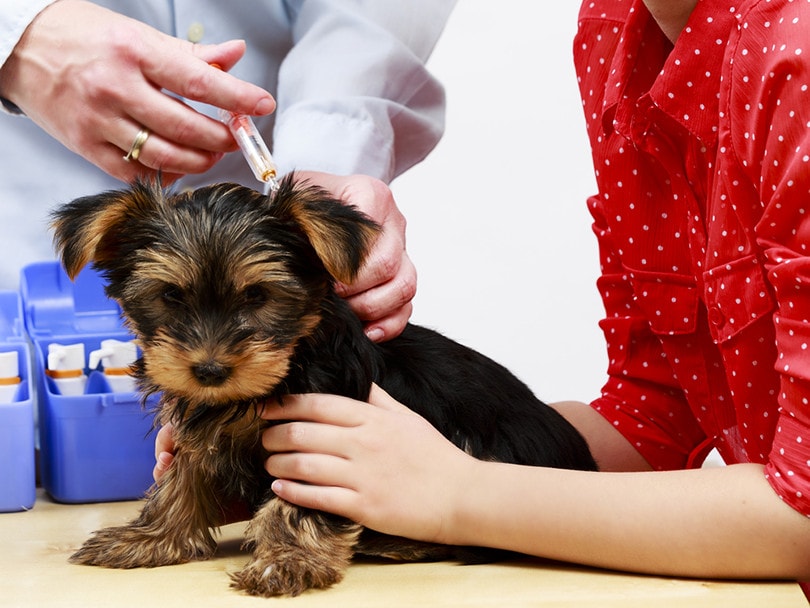
Vaccines, however, are becoming the victims of their success. Many of the diseases that dogs are vaccinated against are now virtually non-existent. It’s not likely that your dog will come into contact with a dog with distemper in the dog park because the domestic dog population has herd immunity against it. The majority of dogs are vaccinated, which gives non-vaccinated dogs protection. This is the same concept as the human poliovirus. The virus has been virtually eradicated due to vaccination, so even unvaccinated individuals are unlikely to contract it.
The concept of herd immunity can give pet owners a false sense of security. Diseases like canine distemper, for example, still exist in wild animals. You don’t know dogs with distemper because they’re vaccinated. It does not mean that your unvaccinated pet can’t get sick.
Risks of Vaccinating Your Dog
There is risk involved in almost anything, including vaccinating your dog. Vaccines do have some side effects, most of which are mild and short-lived. Common vaccine reactions include a small lump at the injection site, which disappears spontaneously in about 2 weeks. This is relatively common, and it occurs in about one in 10 dogs.
Uncommon side effects, affecting 1 in 1,000 dogs, may include a temporary, self-resolving lack of appetite and energy. One in 10,000 dogs (which is considered very rare) may experience an immune or allergic reaction to ingredients in the vaccines.
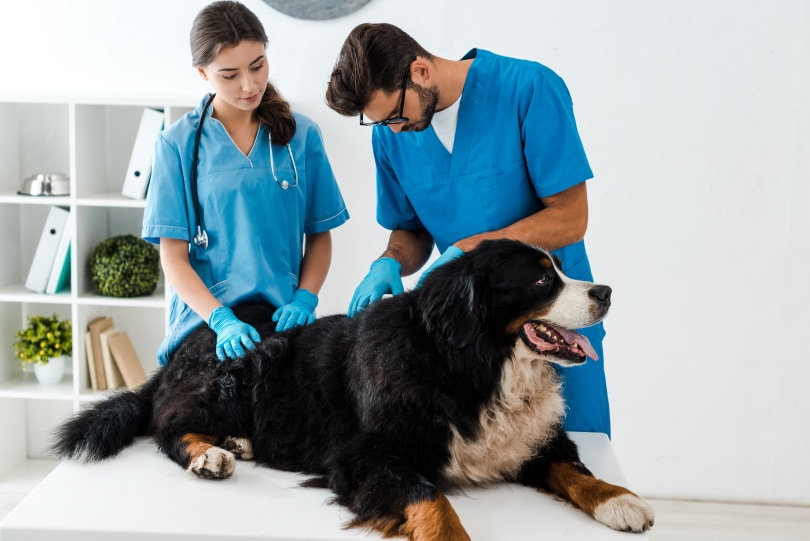
Risk Assessment
Serious side effects of vaccines are very rare. While they tend to cause a vaccine backlash in the media, putting it in perspective is important. It is a certainty that vaccinations protect your dog from potentially life-threatening diseases. The diseases have a very high mortality rate, and your dog is at risk if they are unvaccinated. The vaccines themselves have a very low risk of causing a serious reaction in your dog.
It’s also important to know that allergic reactions are treatable when caught early. For that reason, your veterinarian will often ask you to stay at the clinic for a period of time following vaccine administration so any reaction can be reversed.

Conclusion
We have provided the average costs of dog and puppy vaccinations to help you include these in your pet budget. Vaccinations that are recommended for your pet should be discussed with your veterinarian based on your lifestyle and the laws and region in which you live. Vaccines are vital to your dog’s healthcare since they prevent your dog or puppy from contracting life-threatening illnesses.
See Also:
- How to Get a Dog to Take a Pill: 7 Vet-Approved Tips to Consider
- Can Vaccines Make Lymph Nodes Swell?
- Which Dog Vaccines Are Absolutely Necessary? Our Vet Discusses 5 Essential Shots
Featured Image Credit: New Africa, Shutterstock

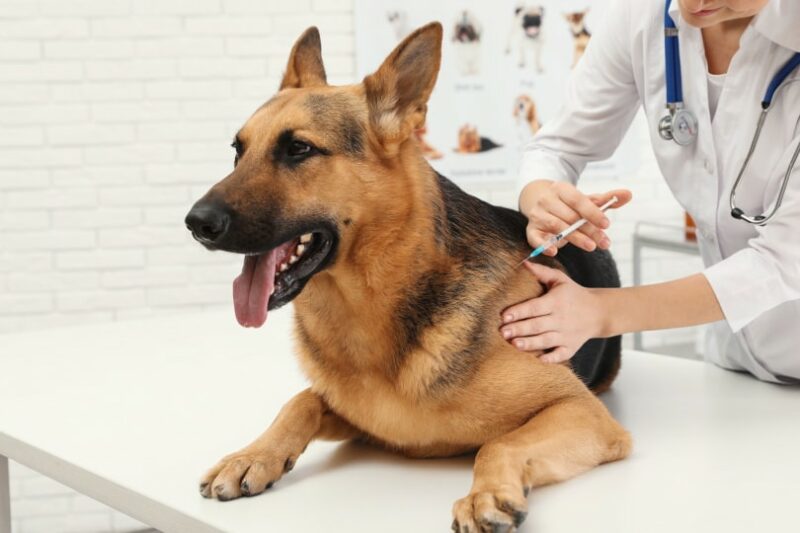







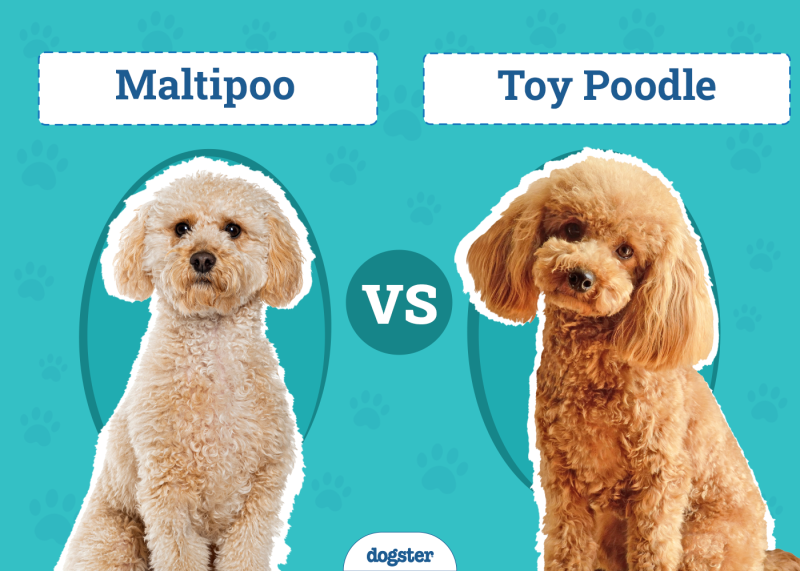




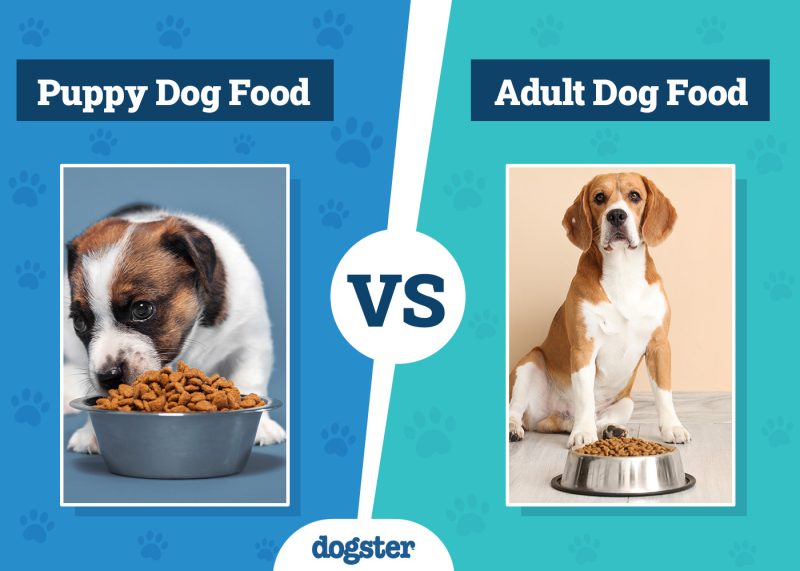








2 Responses
I have a 4 1/2 year old mini dashchund that just gave birth to 3 pups, what shots and things like deworming do I need to take care of before letting any puppies go to new homes and what are the approximate costs?
Hi John,
Congratulations on the new puppies! That’s such an exciting (and busy!) time.
Puppies need a series of vaccinations and deworming treatments before going to their new homes, but the exact timing and type of shots can vary depending on their health, location, and the veterinarian’s guidance. It’s best to schedule a checkup for both mom and pups with a licensed vet to make sure everyone’s healthy and up to date on care. A vet can also give you a clear idea of the costs, which can differ quite a bit by region and clinic.
If you'd like to speak with a vet online, we'd recommend booking a consultation with one of our expert vets at pangovet.com and they will be able to clarify and questions you have 🙂